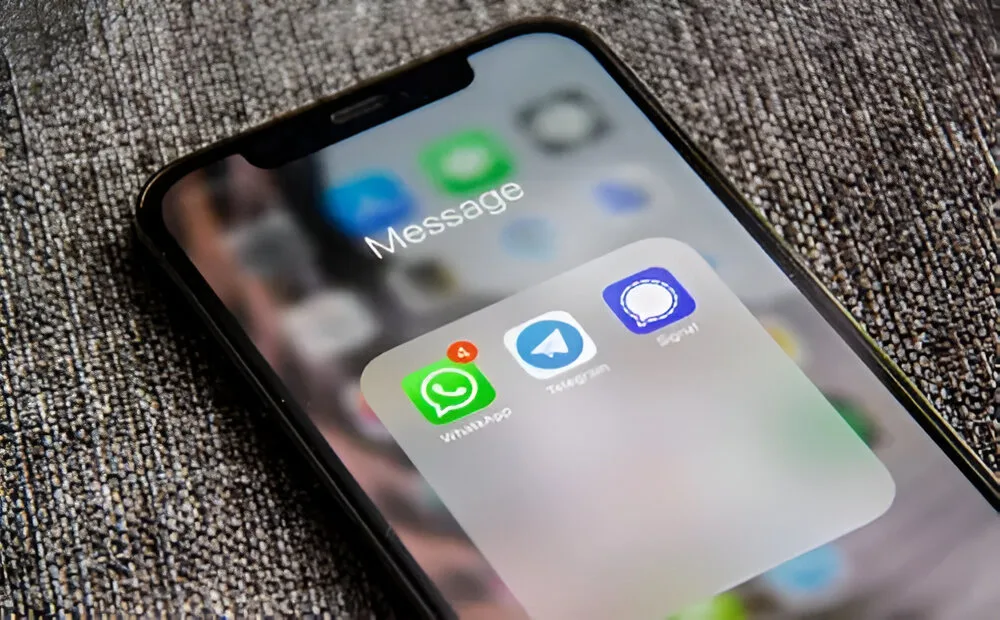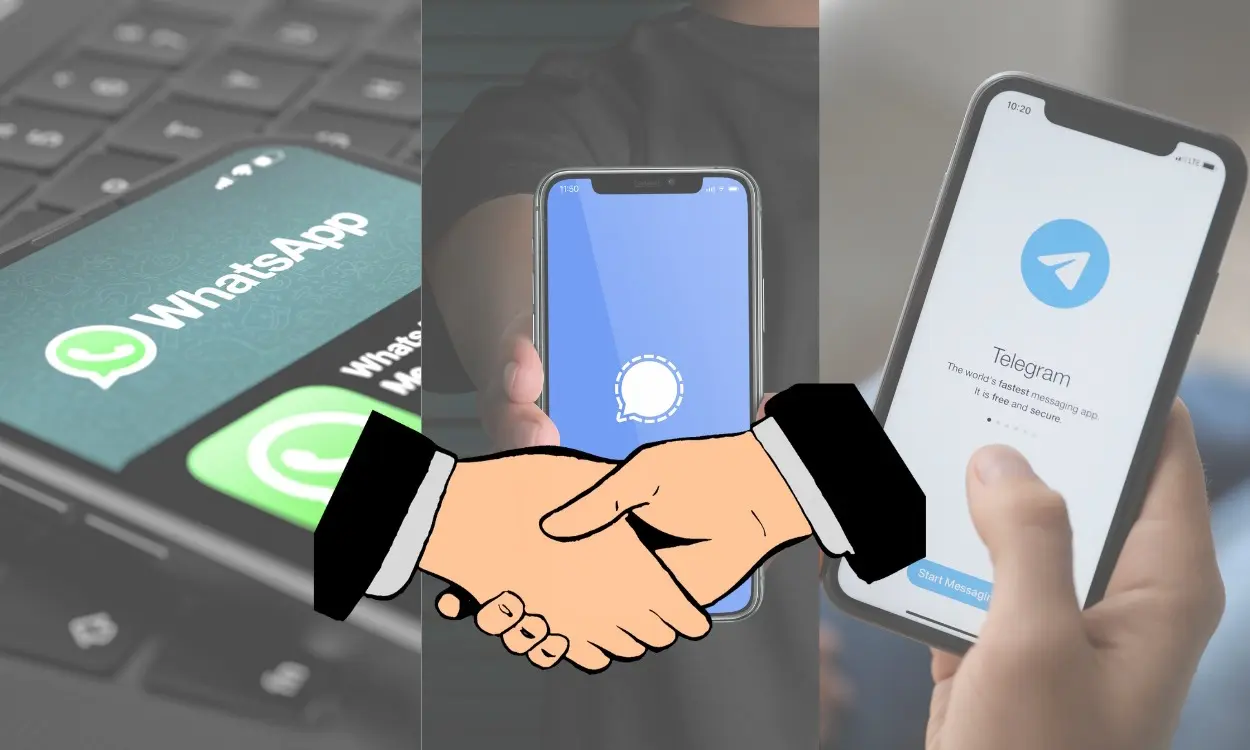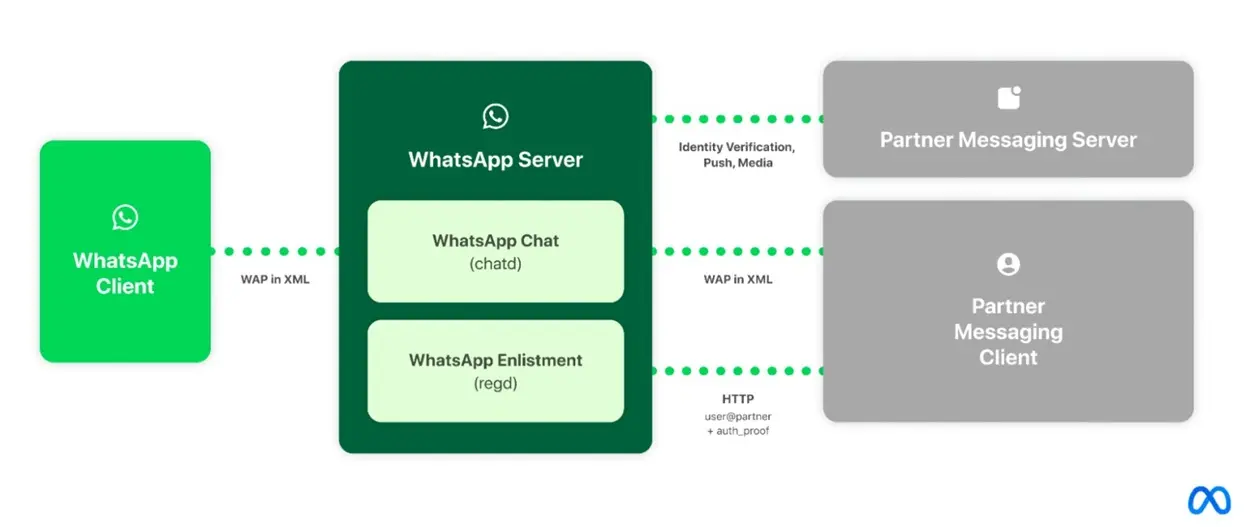
In 2022, the European Union (EU) enacted the Digital Markets Act (DMA) and set a deadline for companies to adhere to its interoperability regulation by 2024. Meta, in March 2024, complied with the DMA by enabling interoperability between WhatsApp and Messenger within the EU. This development raises the question of what exactly interoperability means for messaging apps and whether companies should adopt it. In this discussion, I delve into the concept of interoperability in messaging apps, examining its merits and demerits.
A Case for Interoperability in Messaging Apps
To grasp the concept of interoperability in messaging apps, let’s consider the analogy of emails. Just as you can seamlessly send an email from Gmail to an Outlook user without needing an Outlook account, and vice versa, interoperability in messaging apps allows users on different platforms to communicate without hindrance.
A more relatable example is the way UPI (Unified Payments Interface) functions in India. Users can transfer money from PhonePe to a GPay user without needing a GPay account, showcasing interoperability across various UPI apps.
Interoperability essentially enables a service to transcend its platform boundaries and interact with other third-party services. In recent years, governments, particularly the EU, have been advocating for and urging companies to implement interoperability in messaging apps.

This ruling offers significant convenience to users, allowing WhatsApp users to send messages to users on other messaging apps. Users are no longer restricted to a specific messaging platform for sending or receiving messages. They can opt for the messaging app that best suits their needs, irrespective of whether their contacts use the same service, thereby enhancing the overall messaging experience.
Interoperability also plays a crucial role in preventing platform lock-in. Apple, for instance, has capitalized on its iMessage lock-in to attract more users. However, this lock-in, also known as the Network Effect, binds users to the platform, making it challenging for them to switch. Recall the instance when Tim Cook suggested to an audience member to buy an iPhone to send better videos to his mom?
Clearly, there is a compelling argument for implementing interoperability in messaging apps. However, what are the potential drawbacks? Let’s explore them below.
What are the Drawbacks?
While Meta has implemented third-party interoperability for WhatsApp and Messenger in the EU, certain issues require careful consideration. One crucial aspect is the maintenance of end-to-end encryption (E2EE) to ensure user privacy and security while complying with interoperability requirements.
WhatsApp, known for its default E2EE, has been joined by Facebook Messenger in rolling out this feature. Signal and Google Messages also prioritize E2EE. What’s common among these messaging apps is their use of the Signal Protocol, a well-established standard for implementing end-to-end encryption.

Meta has stated in a blog post that third-party messaging apps adopting the Signal Protocol for E2EE could “maximize user security.” The company is open to supporting other compatible protocols, but they must offer the “same security guarantees as Signal” to be considered.
Ensuring E2E encryption while enabling interoperability requires a common cryptographic protocol to prevent any data leakage during message transmission between services.
Meta acknowledges this challenge, stating, “While we have built a secure solution for interop that uses the Signal Protocol encryption to protect messages in transit, without ownership of both clients (endpoints) we cannot guarantee what a third-party provider does with sent or received messages, and we therefore cannot make the same promise.”
This highlights the ongoing security concerns associated with implementing interoperability in messaging apps. Complicating matters, Apple’s iMessage and Telegram use different proprietary encryption protocols. Supporting numerous messaging apps with varying protocols presents a significant challenge. It’s worth noting that iMessage is not subject to the EU’s interoperability regulation, as a substantial portion of EU residents do not use the service.
What About Spam?
In addition to security issues, there are concerns regarding spam and phishing in messaging apps. Unlike email services, messaging is more private, so introducing interoperability could potentially turn personal messaging into a nightmare.
Email inboxes are notorious for being flooded with spam, phishing attempts, and unsolicited messages. Allowing third-party services to access messaging platforms could open the door to malicious actors, expanding the network of communication and increasing the risk of spam and phishing attacks.
Closing State: Is Interoperability Beneficial?
While interoperability offers user convenience and prevents platform lock-in, ensuring robust security across third-party services presents a challenging technical hurdle. The use of different security protocols among messaging apps could introduce vulnerabilities, potentially compromising user data. Moreover, the risk of spam and phishing messages could detract from the personal messaging experience.
Regarding platform lock-in, Apple is now compelled to adopt the RCS communication protocol and plans to introduce RCS support to iMessage in 2024. This move will replace the unencrypted SMS protocol as the fallback option on iMessage. However, Apple is reportedly not opting for the Signal protocol for RCS. Instead, it intends to develop a distinct RCS encryption standard in collaboration with the GSMA. Despite these changes, messages between iMessage and Android will continue to be displayed in different colored bubbles, with Android messages appearing in green.
As the interoperability battle unfolds in the messaging app arena, what are your thoughts on the EU’s stance? Share your views in the comments below.

0 Comments